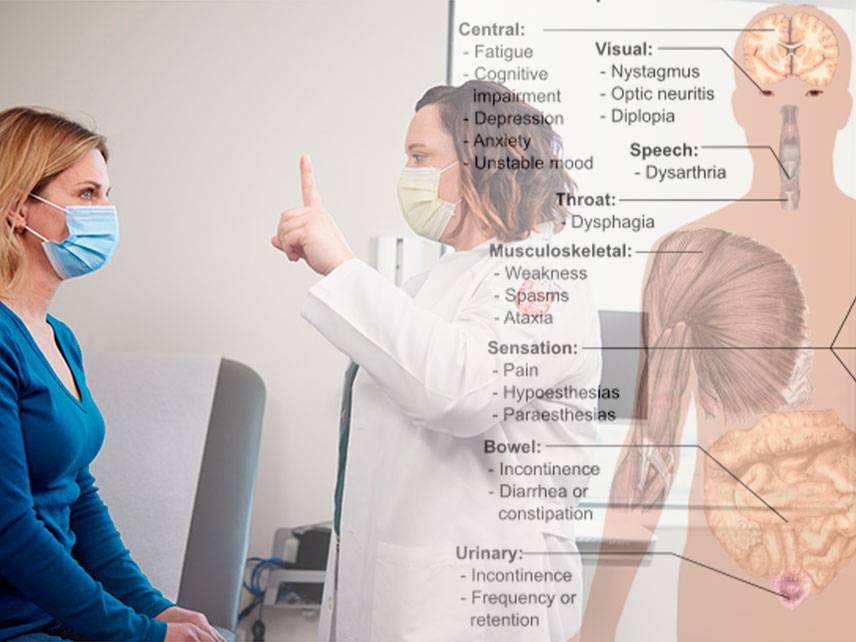Multiple sclerosis (MS) is a chronic neurological condition that can affect the central nervous system. It can cause a variety of symptoms and signs, ranging from mild to severe, and can even lead to permanent disability. While there is no known cure for MS, treatments can help manage the symptoms and slow the progression of the disease. This article will explore the signs and symptoms, causes, risk factors, diagnosis, treatment, coping, support, and complications of living with MS.
Signs and Symptoms
The signs and symptoms of MS vary widely and can range from mild to severe. Common symptoms include fatigue, muscle spasticity, pain, sensory disturbances, vision problems, and bladder and bowel problems. Other symptoms include numbness, tingling, loss of coordination, difficulty walking, and cognitive problems.
Causes
The exact cause of MS is not yet known, but researchers believe that it is an autoimmune disorder, meaning the body’s immune system mistakenly attacks healthy cells in the central nervous system. This leads to inflammation and damage to the myelin sheath, which is a protective layer that surrounds the nerve cells.
Risk Factors
Although the exact cause of MS is unknown, certain factors can increase an individual’s risk of developing the condition. These include age, gender, family history, and geographic location. MS is more common in women than in men, and is most likely to occur in people between the ages of 20 and 40. People who have family members with MS also have an increased risk of developing the condition. Finally, people who live in certain geographic areas, such as northern Europe, are more likely to develop MS than people who live in other areas.
Prevention
Since the exact cause of MS is unknown, there is currently no way to prevent it. However, some researchers believe that certain lifestyle factors may play a role in the development of MS. These include avoiding smoking, exercising regularly, maintaining a healthy weight, and eating a healthy diet.
Diagnosis
MS is often difficult to diagnose because its symptoms can vary widely and mimic other conditions. To diagnose MS, doctors will typically perform a physical exam and ask questions about the patient’s medical history. They may also order tests such as an MRI, a spinal tap, or an evoked potential test.
Treatment
There is currently no cure for MS, but there are treatments available to help manage the symptoms and slow the progression of the disease. These treatments include medications such as corticosteroids, immunomodulators, and disease-modifying therapies. Other treatments include physical therapy, occupational therapy, and lifestyle changes such as exercise and stress reduction.
Coping and Support
Living with MS can be challenging and it is important to get the support you need. Talking to family and friends, joining a support group, and seeking counseling can all help to make the journey easier. It is also important to take good care of yourself by eating a healthy diet, exercising regularly, and getting plenty of rest.
Complications
Living with MS can lead to a number of complications. These include increased fatigue, depression, pain, cognitive problems, vision problems, and bladder and bowel problems. Some people may also experience difficulty walking, impaired coordination, and increased sensitivity to heat.
Living with Multiple Sclerosis
Living with MS can be difficult, but there are ways to make it easier. Staying informed about the condition, getting support, and making lifestyle changes can all help to make life with MS more manageable. Additionally, working with your doctor to find the right treatment plan can help to reduce the symptoms and slow the progression of the disease.





